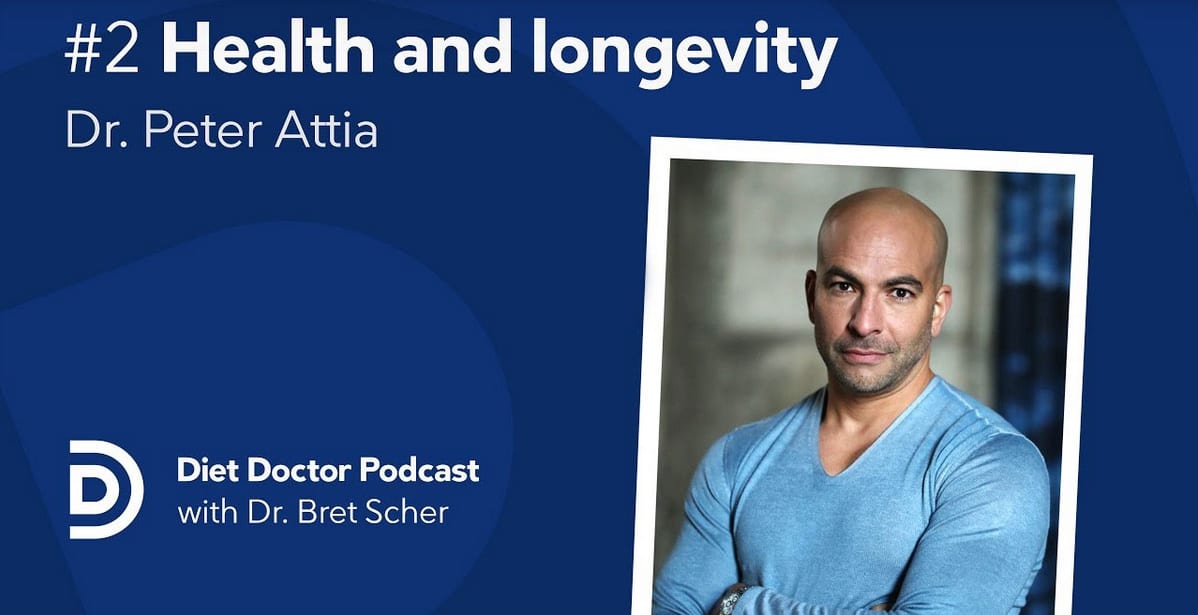What would you change in your life if you could live forever?
Ok, let’s be realistic. Not forever. But what about an extra five years? Ten years? Or how far would you go to ensure you would be healthy and vibrant until the day you die? That is the science of longevity. The inexact science I should add.
Starting as a cancer surgeon and researcher, Dr. Peter Attia would never have predicted where his professional career would lead.
After all, surgery is possibly the ultimate medical field for immediate satisfaction. See the disease, feel the disease with your own hands, and remove the disease.
Longevity, on the other hand, is the opposite of immediate satisfaction. You never really know if you got it right. It’s educated guessing at best.
So, why would someone change from specializing in surgery to specializing in longevity?
That is just one of the many fascinating aspects of Dr. Peter Attia.
One thing is clear about Peter. Whatever he does, he goes all-in. Whether it is endurance swimming, endurance cycling, or finding the keys to longevity, Peter wants to know it all and wants to know it now. It is this approach that has helped Peter position himself at the cutting edge of longevity research and practice.
In a field with hundreds if not thousands of unanswered questions, Peter is doing his best to answer them. Whether it is a ketogenic diet, cyclical fasting, weight lifting, sleep patterns, drugs like metformin, and more, Peter has experimented with himself and his patients in his quest for answers. His new podcast, Peter Attia’s Drive is a showcase of his experience and features some of the luminaries in the world of health and wellness. As such, it has quickly become one of the most detailed and educational podcasts around.
As a doctor with a keen interest in longevity myself, I welcome Peter’s philosophy and the intensity with which he approaches the field. Let’s be honest. Longevity practice is hard! Trying to get people to alter their habits for a potential benefit decades down the road is no easy task. We live in a society where we want immediate feedback and immediate results. Delayed gratification does not seem to be in our nature.
Part of the challenge, therefore, is knowing what markers to follow in the short term that will lead to success in the long term. Test, re-test, change the intervention, and then test again. Rinse and repeat. That is the pattern of longevity practice. Peter is on a mission to perfect that science for each individual patient he sees.
I am on a mission to help disseminate that information to the masses so we can all find out an individual path to health and wellness. And that is why I am grateful to have had the opportunity to interview Peter for the Diet Doctor Podcast With Dr. Bret Scher. I just wish I had a few more hours to explore more topics in more details! Hopefully we will have the chance for part two in the future. For now, we have a one hour engaging and open discussion that is the perfect interview for episode number two of the Diet Doctor Podcast.
Enjoy!
Bret Scher, MD FACC
www.lowcarbcardiologist.com



Hey Brett – Thanks for the confirmation about Hgb A1c . I am an FP in practice 32 yrs and have intuited that the A1c was misleading for years . There are papers that reviewed the biochemistry of a skewed A1c that were published years ago – I can even send you one if you like. The medical community collectively chose to ignore this for many reasons mostly that center on the convenience and simplicity of having one value to rely on. In addition, so many T2DM studies use it as a surrogate marker .
Keep up the good work! Love the show ,
Mike McEvoy MD
Thanks for your comment Mike. Unfortunately, medicine has far too many examples of making things “simple” and “easy” at the cost of misleading many. Thanks for your perspective!